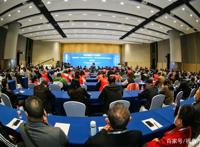子谦译文|第五类(代)创业教育理论:价值创造(28)
2023-06-03 来源:旧番剧
源于心理学研究的动机和幸福感理论构成了一个对人类发现有价值的东西进行研究的可能的起点。约翰·费斯克(Fiske)综合了大量关于动机研究的文献,形成了一个由五个不同视角组成的框架。根据费斯克的研究,人类动机的不同取决于我们是否在为病人做心理分析,检查我们自己的意识、在课堂上观察学生、用计算机作为认知理解的隐喻,或在集体中研究小组成员。在做心里分析时,人们表现出一种享乐主义的自我关注,专注于最大化快乐和避免痛苦,这与功利主义经济学是一致的;在研究人们的意识体验时,他们表现出乐观、面向未来,以信任为基础,关注完成事情的潜力,即强调人的价值活动所固有的情感享受和流动;在课堂教学中,构建一个学习环境中,明确的动机促成了学生对实现目标的期望和价值的感知,进而形成了行为动机;当使用计算机作为研究人类认知的隐喻时,科学家们研究了人们如何处理信息的心理,以便达成一致的理解,即旨在达到一种摆脱个人和集体不和谐和分离的和谐体验;当研究群体时,归属于一个社会集体的动机似乎是无穷无尽的,从生存、繁衍和到集体行动、理解和同情。动机理论中的这五个观点如下表1所示。
Another value framework anchored in psychology has been developed by Seligman (2012), consisting of five measurable elements of subjective well-being; positive emotion, engagement, relationships, meaning and achievement. Positive emotion is interpreted as a mood induced by a pleasant life. Engagement is interpreted as being in “flow,” being completely absorbed by a task and losing track of time. Relationships are interpreted as meaningful experiences shared with other people, often in close and long-term relationships. Meaning is interpreted as belonging to and serving something that is bigger than the self, often despite its sometimes detrimental impact on other elements in the framework. Achievement is interpreted as achieving one’s goals solely for their own sake, isolated from any eventual resulting impact on the four other elements of the framework, i.e. winning just for the sake of winning. These five elements of well-being are shown in Table 1 below.
猜你喜欢
动漫推荐
免责声明:动漫番剧数据来源网络!本站不收费,无vip,请勿上当!
www.jiufanju.com-旧番剧

















